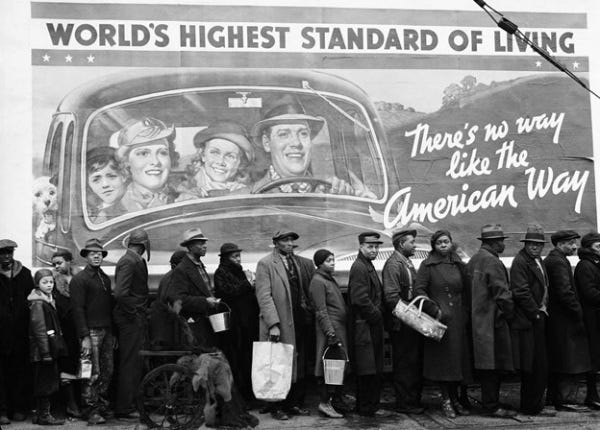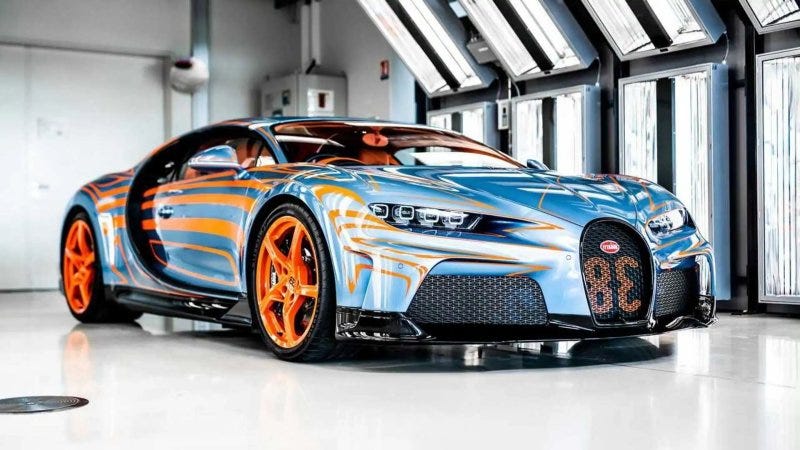Whether we want it or not.
Why are modern cars so sophisticated? If you ask me, it's desperation. They are so cool exactly because they are the Swan Song of the whole car industry. The last desperate attempt to survive, by putting all the chips on the table. Modern cars are just too much of everything.
Too much "electric" done and promised wrong
Producing Electric Vehicles (EVs) that are fancy outside but obsolete inside burdens them with profit-squeezing batteries, too many unnecessarily sophisticated or expensive parts and can emit nearly 70% GHG more than traditional Internal Combustion (IC) cars. Besides, such production would be possible in the desired volumes only if there were: - enough lithium and other critical materials (six times more than non-electrical cars) available without causing substantial geopolitical turmoil - no expectation or promise to make EVs a quick, painless drop-in replacement of IC cars. In the US alone, such a goal would require remaking power plants and grids almost from scratch, possibly in less than 8 years, by armies of skilled electricians who don't exist.
Maybe that's why almost all current EV product is "going for under sticker price.
Too much false autonomy and false smartness
A recent survey of 25 makers of "smart" cars found that none of them gave adequate privacy notices to their customers, but all their cars collected much more personal data than they should, often for no visible reason.
Just like the cloud is somebody else's computer, it's fair to say that "smart" vehicles that are also autonomous (AVs) are at very high risk of being just somebody else's car. Unless its driving system were completely, physically disconnected from the Internet, every AV model could be either explicitly designed, or eventually hacked, to behave just like Waymo’s cars already do, that is to pullover and open doors and windows by any police or emergency vehicle, real or not. Or, if you miss a payment and this patent is adopted , "your" AV could drive back to its dealer parking lot, or its junkyard (also here).
Repairs of "smart", more or less driverless cars can be up to three times as expensive. Even something as simple as a tail light issue can "cripple an entire truck and cost 5600 USD to repair" (if you have similar horror stories, please DO share them in the comments!).
Many AI systems may be more dangerous than expected because, like the notoriuous chatGPT, they "never perform the same way twice". Should lawmakers eventually agree that (as a member of the Italian Society for AI Ethics argues here) even such system must be considered as just another class of ordinary "products", liability for their errors may make AVs much less profitable even for carmakers.
Maintenance and liabilities aside, expectations to use AVs as the primary choice of transportation may make urban traffic much worse: "zombie trips", that is AVs driving empty for sheer lack of parking space, or other equally dumb reasons, that also could cause totally unnecessary accidents and obstruct more fire engines or whole roads than they ALREADY do. It is also worth noting that any way to avoid zombie trips by "taxing the hell out of them that was not based on anonymous payments would be a privacy nightmare.
The good news is that likely nobody needs to worry (except investors, that is...), because really Autonomous Vehicles that would have those side effects... may very well never arrive, as I noted in 2020 and Chinese battery and electric car company BYD said again in April 2023. So far, even the technology to adequately test fully autonomous vehicles may be not feasible.
The root, non-digital problems of all cars in the 2020s
All the problems discussed so far are more or less direct consequences of software trying to eat cars too, but for NO good reason. Problems that would be very different or not exist at all if software didn't exist or, more realistically, regulators actually got how software works, and how it amplifies other problems.
Indeed, what makes huge problems of what you read so far are the non-technical problems that follow, that also depend little or nothing from what fuel a car uses, or may use.
First of all, the obvious: cars for private, daily, mass transportation were never smart, and never will. No matter how they "innovate", boxes that stay parked 95% of the time while costing thousands dollars a year (over $10,000 on average in the US) would remain a huge, stupid waste even if cars were made and powered by pure magic and urbanization wasn't increasing worldwide.
Second, boredom and lack of choice. Cars for normal people all look the same. Cool small cars like the Honda Fit are no more. With cars, even the Taliban have more freedom of choice than Westerners. That would be a feature, not a bug (seriously) if cars were all the same sensible thing. But...
Third, too many cars are the same in the wrong way, that is too stupidly big, powerful and fast. Most of the power of modern cars does ABSOLUTELY NOTHING in cities except increasing risks, pollution and waste of money. Batteries and autonomy are a much bigger problem than they could be for EVs, simply because (unlike the Taliban, again) the "free market" wants to push uselessly supersized trucks in the US, and equivalent elephants elsewhere, instead of fighting cars' excessive speed and obesity.

Fourth, cars are also increasingly divisive. That Doonesbury story against SUVs is more than twenty years old, and things have just got worst since then. In the US (but the rest of the "First World" isn't in much better shape), huge subsidies, paid even by those without a car, have produced more housing per car than for person, made car-dependence a non-negligible reason why housing is unaffordable and transformed cities in places where being inside a vehicle is safer than being outside one. If you can afford it, of course.

Robert Moses did not lower overpasses to keep carless people out of Jones Beach, and I do not think cars are "historically intertwined with fascism". Still, it's hard to deny that cars increasingly divide people these days, putting urban e-bikers against suburban SUV owners, and everybody who can afford new "green" vehicles every few years against all the working poors who couldn't afford any other car if their 15-year old one broke.

What is needed instead
Of course, cars cannot disappear. We just need (again: regardless of the engine type) cars easily shareable and above all very different from those singing their Swan Song now, at least in these ways:
1. LESS "Performance" and size
No car that is "faster than a plane, because it's electric" belongs to roads. Personally, I'll never, never understand how and why, if the speed limit is X Km/h, cars that can go faster can be street legal. But never mind me. There are many others arguing that it's time to "accept an evolution" in what a car driver can do, and where, including nobody less than the Formula 1 executive who recently said "If you like speed, you go on a circuit, not on the roads... Why do we put people in a situation where they need to drive after they've drunk? Give people options to actually get home".
Cars without tons of electronically assisted driving, but much less powerful than today, are cars that even inexperienced drivers may safely (and cheaply...) rent or share tomorrow, rather than waiting years for really autonomous taxis to carry them safely.
2. MORE sensible variety, LESS complexity. Much less
Speaking of EVs, cars are just one of many types of "Electric Vehicles". When electric SUVs are really needed (that is, never in urban and almost all "suburban" environments), the least worst way to design them may be to "really start from scratch" like these guys. But the category electrifying faster than basically any other one right now is rickshaws, and we in the West could learn a thing or two about them.
Speaking of cars in general, cars are tools, like hammers, with no real or sustainable reason anymore to be any cooler than hammers. But if cars are to be cool... how cool would it be to buy a fully working but "naked" car, and then put on it a car body purchased separately, or even the same of your previous car? Or renting a fancy one, just for special occasions? This is not science-fiction. The technology to make all cars modular, shippable in Ikea-like flatpacks and with body and other non-critical parts fully customizable later with 3D printing and similar techniques, already exists.

EVs are the best candidates for this reboot of cars, simply because it's much easier for them to be bare SURFACES, or "batteries on wheels", that could wear almost any hat.
Last but not least, cities. This year, Toyota's new CEO has declared city-integrated autonomous mobility a top priority. That makes a lot of sense, because unless such catastrophes happen that cars will be the last of our problems, the majority of people will keep living in cities, and needs decent mobility. What matters is to make cars for cities, not the other way around, in this and this way.
3. Durability (=ease of maintenance)
It has become commonplace to change car every three years, on leasing models. But cars, or anything else with so many downsides, should last much, much more, and I mean all cars. New cars made as I just described could last decades without much effort, if coupled with sensible Right to Repair laws. But even old cars could last longer... with an engine transplant. Years ago I praised a French attempt to convert old cars to hybrid electric for less than 6K Euros. This year, a guy in Australia is trying to do the same thing, even cheaper. Let's wish them luck!
Let the old "modern" cars go
Let the really rich have luxury cars and play with them. As far as transportation and quality of life in general go, it doesn't matter if the 0.01% has one or ten Bugatti Chirons in the garage. The problem is if, in order to have those toys, they insist on making life too hard for people who'd be happier without "owning" any car, or on forcing the ones who really need a car to choose only among dumb, falsely "new" models.
I am sure there already are millions of people in "First World" countries who would not just tolerate but welcome cars that are much less impressive but make really sustainable to use a car, whenever a car remains the best or only way to do it.
I am sure that there many, many more millions such people elsewhere, especially in Africa, where the first thing a very young population rightly wants is "some mobility", but so far is stuck with bad leftovers (more than 90% of the cars and trucks in Kenya and Nigeria are used vehicles from overseas.). The first maker of vehicles, of whatever type, with the features sketched here will own that market, and likely all the others too.
This change is going to happen because traditional carmakers have no different, or more powerful ways to resist it than the old Swan Songs they're already singing. Did you know that a lot of non-EV cars, mostly foreign ones, may became unsellable in China very soon? Or that Chinese companies like BYD are selling "more EVs than Tesla, because [theirs] cost about 30K USDs? Any carmaker that can remain profitable only by continuing to sell the same cars of yesterday, in the same volumes at the same or higher prices is going to crumble soon. Have you checked if your pension fund relies on their stocks?





I agree with your conclusions re. what we need:
- Less performance and size
- More sensible variety, less complexity, less function creep
- More durability and ease of maintenance, focus on repair, not replace
A fourth point I would like to add: We need more car sharing. Most privately owned cars (and company cars, too) spend 95% of their life time parked somewhere. Car sharing cars spend less time parked and more time in use which reduces the necessary number of cars for the same amount of driving. Car sharing won't solve all problems, but can make a significant contribution to reducing the absolute number of registered vehicles. Plus, with car sharing you are not tied to the one car that is too big most of the time and too small for some occasions, but can select a car accordingly to your need case by case.